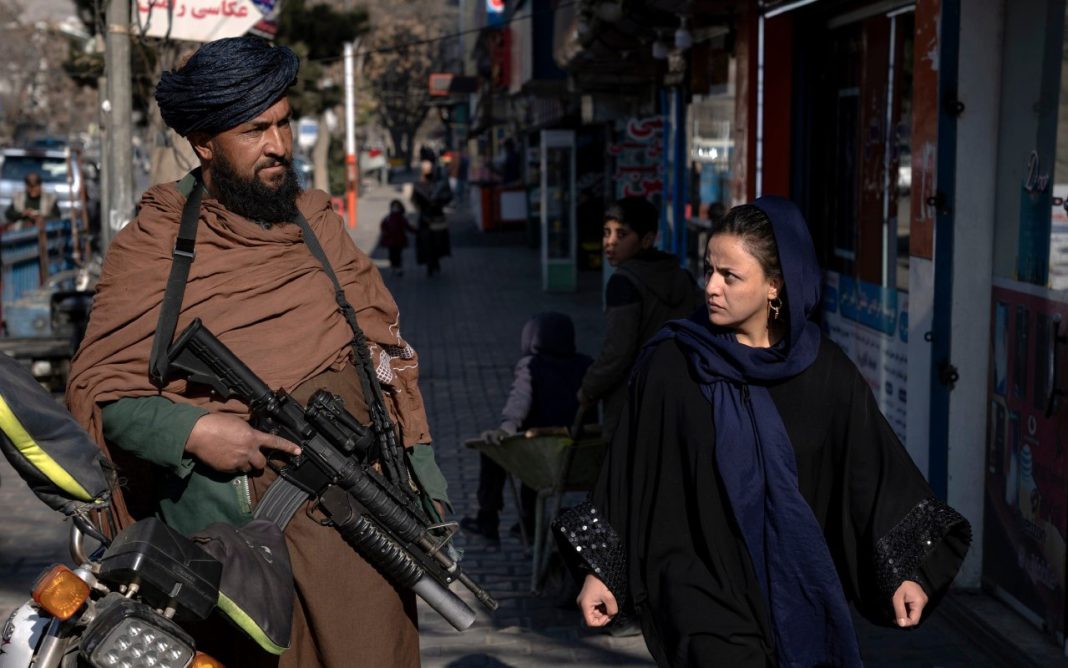Amnesty International said it denounced the Taliban’s latest action prohibiting female students from travelling to Dubai to start their university studies.
“This preposterous decision is a flagrant violation of the right to education and freedom of movement and demonstrates the continued gender persecution against women and girls in Afghanistan,” the rights group said in a post on X, formerly Twitter.
“The Taliban de-facto authorities must immediately reverse their decision and allow these female students to travel and study.”
The head of a Dubai-based conglomerate said Taliban authorities had stopped about 100 women from travelling to the UAE, where he stated he had sponsored their university educations.
Khalaf Ahmad al-Habtoor, founding chairman of Al Habtoor Group, said in a video posted on X that he had planned to sponsor the female students to attend university and a plane he had paid for had been due to fly them to the UAE on Wednesday.
“The Taliban government refused to allow the girls who were coming to study here – 100 girls sponsored by me – they refused them to board the plane, and already we have paid for the aircraft. We have organised everything for them here – accommodation, education, transportation, security,” he added in the video.
Al Habtoor included audio of one of the Afghan students who said she had been accompanied by a male chaperone but airport authorities in Kabul had stopped them from boarding the flight.
Laila said their scholarships were their “only hope to go abroad to continue our education”.
“This was an amazing opportunity for us, but like everything else, this opportunity was taken from us,” she told the Agence France-Presse news agency.
The 22-year-old was due to start a law degree in Dubai, having been forced to abandon her journalism studies under a Taliban government ban.
Laila added she and the other women made it to their departure gate but were turned away at the last moment by men in airport uniforms who said they had an order that those with student visas were not allowed to leave the country.
The Taliban administration has closed universities and high schools to female students in Afghanistan.
In a video posted on X, Human Rights Watch (HRW) urged the international community to “press the Taliban to end their violations of women’s rights”.
On Sunday, the Taliban government’s Ministry for the Promotion of Virtue and the Prevention of Vice closed the Band-e-Amir national park to women, saying female visitors were failing to cover up.
The park, a UNESCO World Heritage Site 175km (110 miles) west of Kabul, is renowned for its striking blue lakes surrounded by sweeping cliffs.
The park in Bamyan province is a popular spot for domestic tourism and is regularly swarmed with Afghans relaxing at the shore or paddling the waters in rented boats.
HRW Associate Women’s Rights Director Heather Barr told AFP the decision to ban women was “cruel in a very intentional way”.
“Not content with depriving girls and women of education, employment and free movement, the Taliban also want to take from them parks and sport and now even nature,” she said in a statement.
“Step-by-step, the walls are closing in on women as every home becomes a prison,” she added.
The minister for the promotion of virtue and prevention of vice, Mohammad Khalid Hanafi, justified the ban, saying women were failing to wear hijabs properly.
“We must take action from today. We must prevent the non-observance of hijab,” he stated during a visit to Bamyan.
Ministry spokesman Akef Muhajir told the AFP news agency that local religious leaders requested the temporary closure because women from outside the province were not observing the hijab dress code.
Other national parks in Afghanistan remain open to all, he added.
On Sunday, the United Nations special rapporteur on human rights in Afghanistan, Richard Bennett, asked in a social media post: “Why [is] this restriction … necessary to comply with Sharia and Afghan culture?”
Women have been barred from visiting parks, fairs and gyms and must cover up in public since the Taliban returned to power two years ago.
They have also mostly been blocked from working for UN agencies or NGOs. Thousands have been sacked from government jobs or paid to stay at home.
